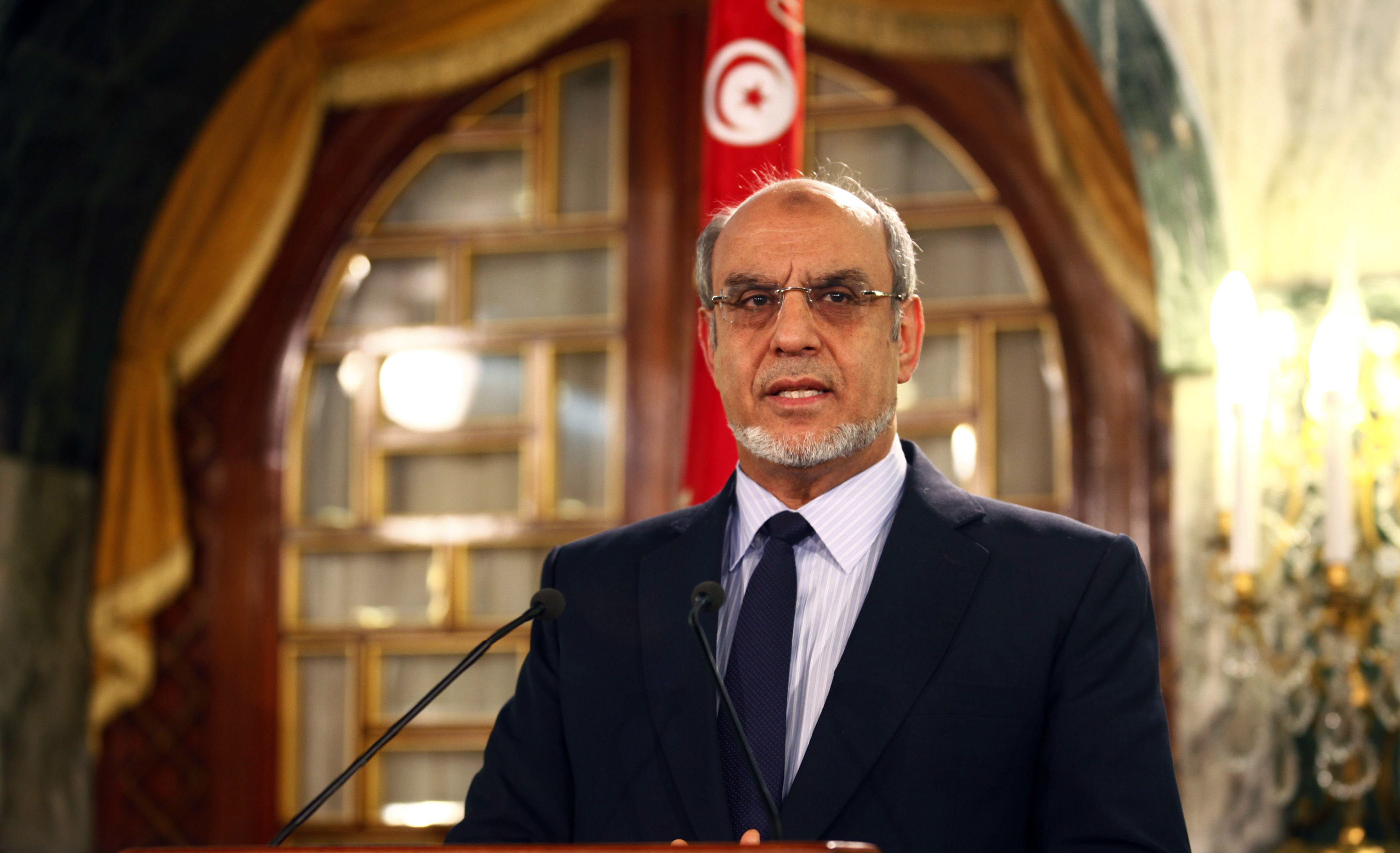
Tunisia’s Prime Minister Hamadi Jebali speaks as he announces his resignation during a news conference in Tunis February 19, 2013. Jebali resigned on Tuesday after his attempt to form a government of technocrats and end a political crisis failed. REUTERS/Zoubeir Souissi
Tunis, Asharq Al-Awsat—Tunisia’s prime minister Hamadi Jebali resigned yesterday after a failed attempt at forming a non-partisan government.
Jebali’s resignation is expected to further deepen the country’s political crisis, which was sparked after the assassination of a senior opposition figure.
“I promised and assured that, in the event that my initiative failed, I would resign as head of the government, and that is what I have done,” Jebali said on television.
Jebali—whose efforts to form a government was rebuffed by his own ruling Islamist party Ennahda—said he was standing down to “fulfill a promise made to the people.”
“This is a big disappointment,” he said. “Our people are disillusioned by the political class. We must restore confidence.
“The failure of my initiative does not mean the failure of Tunisia or the failure of the revolution,” he added, referring to the country’s uprising two years ago to oust a long-time dictator Zine El Abidine Ben Ali.
The current state of instability has also prompted an international ratings agency to downgrade the government’s credit rating.
According to the S&P credit rating agency, Tunisia’s economy contracted 1.8 percent in 2011 and saw a sluggish 2.4 percent growth in 2012. S&P said the current instability suggests growth will not recover in 2013 either.
“We expect lower tourism receipts, combined with a widening trade deficit, to result in current account deficits that will remain in excess of 5 percent of GDP through 2016,” the ratings agency’s statement said. “We anticipate that Tunisia’s economic recovery will be slow, particularly given the weak economic conditions in the EU.”
The agency, which downgraded Tunisia’s rating from BB to BB-, said recovery and investor confidence had been damaged by the pervasive instability as political parties have haggled over the shape of the government.
The move, the third such downgrade since the revolution, makes it harder for Tunisia to borrow on international markets and decreases foreign confidence in Tunisia’s economy.
